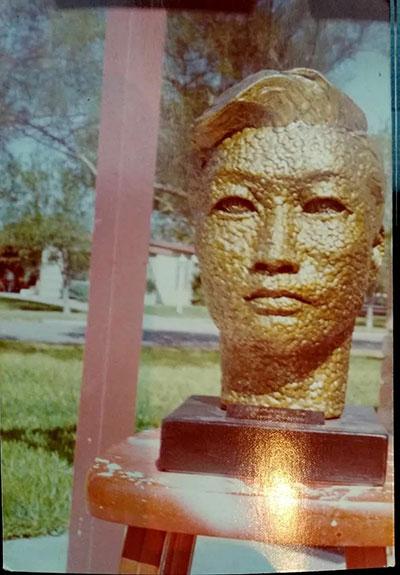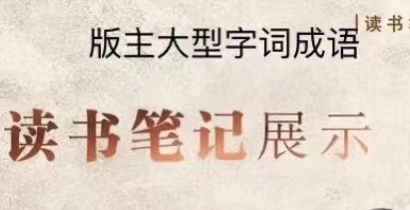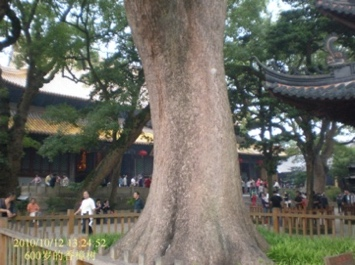In August of 1972, three officials of the Education Bureau of Tongshan County government came to gather us about thirty students in Xuzhuang Middle School, carrying on the assignment. Both of us decided to teach English and were told that we could not work in the same school because most of the middle schools at that time were small. In addition, a class had only two periods English per week. We asked to go to the northwest in order to come to Meilan mother’s home conveniently. Our moods were gloomy. First, we changed our major and would teach English and were not as cocky as those whose English had been trained professionally. Second, I was a suspect 516 member. It was impossible for us to be entrusted by the leaders. Therefore, we expressed no hope, except the northwest direction and let them drop us anywhere. In the end, one was to go to the utmost northwest, Heqiao Commune and the other Mapo Commune, to the north of which was Peixian County and the east was Weishan Lake, beyond which was Shandong Province. I rode my bike and went to the two middle schools, making an inspection, meeting with the directors of the two schools. Heqiao Middle School was founded in 1958, and the house condition seemed better, with the wall whitewashed by lime, the ceiling clean, and the ground paved by cement. It was pity there was no power and teachers and staff still used the kerosene light. Mapo Middle School was very young, having only a history of two years and the house we would live in was very crude, the wall coated with mud and the floor being muddy surface. The school yard had not been formed, west and north with rammed-earth construction wall and east with croplands. There were still graves not far from the classrooms. There were only four classrooms furnished with desks and benches. The other classrooms had only pillars made of bricks to support the wood planks as desks and the students had to bring their own stools. The advantage over Mapo was that there were electric lights. The director of Mapo, Chuanwu Yang suggested that I come to Mapo because the living condition was not ideal indeed. By comparison, we adopted Yang’s advice. Meilan Zhang, my younger sister who helped us to look after our kid lived in Heqiao with our Li and I went there on Saturday afternoon for 45 Chinese li by bike and came back to Mapo on Sunday afternoon. About a year later, my sister was called back by parents and because there was no kindergarten in the countryside we had to wean Li and send him to his grandparents. In October of 1973, the director, Chuanwu Yang decided to ask Meilan Zhang also to work in Mapo in order that we could live together. By working together for one year, Yang had a favorable impression of me and hoped both of us could work in Mapo for a period of time, helpful to the school work. In accordance we young couple began to put our total involvement into the teaching profession, and our long range enhancement plan by teaching ourselves.
The destiny was so unfair that we had never thought of working in the country middle school near Shandong after we got the admission notice and began to study in NJU. We must face the arrangement of the destiny. Even if we worked as middle school teachers for our whole life, we should make a positive result, and would never be willing to live as hundreds of and thousands of other teachers who seemed to step around a fixed place and not to make any progress. Our lowest goal was that in a few years, people in the education circle of Tongshan County would know that this couple’s teaching level was above average. In order to realize the lowest goal, we had to teach ourselves consistently and tried our best to enrich us with all kinds of knowledge.
First I calculated the time account. Those whose major was English had studied English in the colleges or universities for only two years like us because of the Cultural Revolution. Every day they had about two hours’ periods, one week about 14 hours. Now I intended to spend three hours a day teaching myself English (in the morning, in the afternoon and in the evening, each one hour respectively) . Furthermore, I could make full use of Sundays and winter and summer vacations. The basic knowledge of English having been grasped in the course of laboring in the village, I estimated that it would take me one year to catch up with the English majors who also entered colleges or universities in 1964. I would continue to study for 3 or 4 years and get to the undergraduate course graduate standard, completely overcoming the inferiority complex. 28 years old, I was confident to control myself, and never worked by fits and starts, or fished three days, letting the net in the sun two days.
At that time, to study English independently had a lot of difficulties. First, there was no material. In the bookstore, there were no books in English except some pamphlets of Zedong Mao and Peking opera model plays. We were anxious to listen to the Standard English record in order to train and correct our pronunciation and intonation. So I went to Nanjing Foreign Language Bookshop and spent my half-month pay, buying a set of Linguaphone English records. The school had record player, which we could use to listen. In addition, we bought a transistor radio priced at 100 yuan (one-month pay of us together only 85 yuan) so that we could listen to 900 English sentence program of VOA. I didn’t dare to listen to VOA publically, but on the market there were books of 900 English sentences, so I had the courage and listened to the radio every evening. I liked American accent very much and enjoyed myself. Not interrupted, I persisted in listening to the program until it was finished.
Second, the social situation was not good for studying English. In 1973, a girl student in Junior Grade Two, called Yuqin Zhang, from Ma Zhenfu Middle School of Tanghe County, He’nan Province couldn’t answer the test questions and wrote a doggerel on the English test paper: “I am a Chinese, why I must study a foreign language. Do not study ABC and I still could be the revolutionary successor.” She was criticized by teachers, but not convinced. She jumped in a reservoir and was drowned. Qing Jiang, wife of Zedong Mao, got to know the event and took advantage of it. The principal of the school and Zhang’s class teacher were thrown into prison. The Party Central Committee issued the document and made it known all over the country. All the schools were ordered to read the document to all students. As a result, almost everybody thought that English was of no use. After graduation from the junior or senior middle school, most of the students went back to their home villages to farm on the fields and the admission tests were cancelled. By means of recommendation by the production brigade and the commune, peasants could go to college without the examination. English is hard to study and the students were afraid of the subject. They were tired of English and resisted the course. Mazhenfu Event poured the oil to the fire and English class was too difficult to perform. During the test, the students opened their books, from which they copied the answers. If the teacher didn’t allow them to do so, they handed in the blank test paper, making a young woman teacher cry in the classroom. I didn’t believe in the theory of English uselessness at all. Our country could not stay always so, it would be constructed and should communicate with the outside world. Study English well and you would be sure to know a lot more than those who didn’t know English. Such a disadvantageous situation didn’t have any negative effects upon my study of English.
Third, there was no method to testify the accomplishment of my study. We had just graduated from the university and got used to being tested by teachers. By comparing with other classmates we could judge our own achievements. Now we taught ourselves and no test and no comparison could tell us the progress we had made, which we were not accustomed to. I encouraged myself by reading a lot of stories of those who had changed their professions and achieved great successes. I gathered a lot of reading materials of such stories and discovered that many celebrities and extraordinary human beings had experienced their profession changes. A troop of political figures, military characters had no history of studying politics in the school or military skills in the military academy. Literary Giant Xun Lu, Moruo Guo who had a lot of titles and great mathematician Luogeng Hua had all changed their professions and taught themselves to become successful. Besides, I had collected a lot of stories about those who had achieved a great success by teaching themselves. For example, I had written down the report on Amang Su, a universal language (Esperanto) poet:
In the Esperanto museum in Vienna there stands a half-length bronze statue of a young Chinese, whose back is straight and who is looking as far as his eye can see. When the bronze was just formulated he was less than 30 years old and had been focused attention on by a lot of famous foreign writers, who called him a glittering nova on our literary arena horizon in the east. This new star is Amang Su.
Amang Su, original called Chengzong Su, was born in 1936. Amang is his pen name. As a kid, he lost his father and was bound by a common destiny with the mother, living a miserable life.
In 1954, he graduated from the senior middle school and warmly filled with registers for the university department of western languages. Unfortunately, he failed in the competitive entrance examinations 3 years continuously. In the third registration, his mother advised him to change the wish; he said nothing and still wanted to study a western language. After the failure, mother saw son’s collapses eye sockets, and didn’t know what to say. She was afraid that her son would fall ill and was not able to buoy up after suffering a setback.
Was there really no way out? Amang Su was pondering in the pain, spending a lot of sleepless nights. In the end he made his mind to take a new road: teaching himself!
When he was in the middle school, he showed particular interest in literature and foreign languages and did well in both English and Russian. Now in order to study foreign languages independently well he set himself strict requests. Every day he got up early, and studied until late at night. In winter in North China, with chilly weather and freezing cold, he often forgot meals and coldness, so absorbed in his study that he used not to know the fire stove had gone out. On the basis of improving his English and Russian, he taught himself German and French.
Accidentally, he got to know a pair of Italians and went to their home, asking them to teach him Italian, who were moved by his warm learning spirit and accepted this student. Amang Su was clever and had strong memory, plus his studying diligently and practicing hard, so that it was not very long before he grasped Italian, from language, grammar to the rhetoric writing. In 1957, Su wrote a review article in Italian, which was published in the magazine of “The Seventh Day”, causing him merrily to realize that a foreign language was a very useful tool. If you really grasped it, you could serve your motherland even if you had not studied in the college. Accordingly, he taught himself Esperanto and other languages of more than 10 countries by looking up the dictionary or comparing the various dictionaries of several languages.
From then on he began to write articles in more than 20 languages, and published his works in more than 40 countries of five continents successively. He introduced in the form of the poem a lot of Chinese outstanding characters, for example, Ni’er, Quyuan, Dufu, and Tianyou Zang etc. and regional scenic spots and historic resorts. In addition, he also translated Chinese folk stories and fables. His works in Esperanto were noticeable in foreign countries and he was called “a young talent Chinese universal language poet”.
In 1957, Amang Su was accepted as a member of the Universal Esperanto Association and 1966, he was elected a member of the central committee of the World Universal Language Youth Organization.

a bronze statue of Amang Su in Vienna
I was deeply moved by the story of Amang Su. Although it was impossible for me to achieve such a great accomplishment as him, I had understood a simple truth that a person could not study in the school for one’s whole life and those who had a great success in his or her life must have a set of methods of teaching him or herself. What Mr. Yunzhong Zhang taught me resounded in my ears that those who could not teach him or herself could not have prospects. I strengthened a faith that as long as you reach a level by teaching yourself, you would be sure to have chance to demonstrate your knowledge. The study had just begun and I should prevent the irritable mood. I should be always unswerving and learn as long as I live. I made my minds to believe in the axiom a proverb said, slow and steady wins the race. The Chinese common people said, “we are not afraid of slowness, we are afraid of not moving.” I often stood in front of a big tree, lost in thought. All big trees have sturdy trunks, very tall stature, stretching branches, and thick leaves. They each have impressive bearing and a commanding presence, causing us to sing a high praise over and over again. But the big tree comes from a nursery stock, growing with grasses together, which you will probably look down upon. But even if you step it into the earth, it can still suck the nutrition from the soil, take the root deeply, absorb nutrients from the deeper and deeper land and transform the carbon dioxide and the water as the organic matter by photosynthesis continuously. Fan Ye from South Dynasty Song wrote a very famous sentence: “A tree tall enough to touch clouds and to shelter the sun grew from a tiny green plant.” Different talented persons grow in different environments. If you want to be a big talent you must absorb nutrients all the time all your life like a planted tree. For me, nutrients are from the books, and from the teaching practice. A human being has advantage over a tree and can display the subjective initiative, adapting and changing the environment and even seeking the environment appropriate for your development. We should live like a tree and once it grows up to a towering tree it can be seen from far away. Approaching it, you can get a lot of green color. When living, it was beautiful scenery and when dead, it could be used as ridgepole and beam, i.e. it was of use whether when living or when dead. As a human being, I have more advantage than a tree and could bring my subjective efforts into full play
Fourth, I had no English lessons to undertake. In that period, every class had only two hours of English. All the English lessons could be undertaken by Meilan Zhang alone. In a few semesters I had only 4 English classes in a week and had to teach other subjects in order to complete the work load. Being young, I liked moving, so I held the duty of physical education for a semester. Besides, I taught the students how to gather Chinese traditional herb medicine according to the pictures in a book. I also accepted the subject of politics, very fashionable at that time (studying the theory of continuous revolution under the dictatorship of the proletariat by Zedong Mao, utter nonsense chaotic language). In 1975, the subject of politics and that of Chinese were merged, I taught Chinese of Senior One Class for one year actually. I had different opinions about how to teach Chinese and held the view that the Chinese teachers should go into the fiery life and write his or her own compositions, setting a good example to the students. During the year when I taught Chinese I had achieved good harvest, getting to know some unfamiliar Chinese characters, and learning the meanings of some unfamiliar Chinese idioms. I led the students to go to the production team to take part in the physical labor, interviewing the villagers and learning to write the documentary literature. I asked the students to write a composition and I also wrote one. I contributed two character reports to the county broadcasting station and they were broadcast in the whole county so that more people in Mapo got to know me. There was no payment system for published pieces and I got only some draft paper as rewards. The commune broadcast station had a liking for me and asked me to edit broadcast manuscripts. Later I worked as an announcer as well, forcing me to look up the sound of the Chinese characters in the dictionary which I could not pronounce correctly and trying to speak Putonghua well. All these non-English activities were useful to my English teaching and doing academic research in the later time. Although I had only a few English classes to teach and did a lot of things not related to English, I had never stopped further educating my English by teaching myself, esp. in the summer or winter vacation when I devoted all my energies to the study, which was completely contrary to the popular opinion that English was of no use. In the eyes of some people, I was an awful fool. In the summer vacations of 1974 and 1975, Meilan Zhang went to Nantong to see our son Lili and I stayed in Mapo, persevering with my activity to improve my English and other knowledge. The study in the school being a kind of a compulsory behavior, you must study the curriculums stipulated by the school, observe the daily schedule, and obey the will of the teacher. Now I studied independently and could arrange according to my strategic goal and the recent plan. In order to achieve the study effects I could work and rest nimbly at random. Every day I got up early, spending two hours in morning reading. Breakfast took place after eight o’clock and then I could only study for one hour, feeling worn out and falling asleep. I began to take a nap at 11 and woke up at one p.m. I made lunch and had the meal. At about two o’clock I felt refreshed and continued to study until 5 or 6 when some students came to me to ask me to play basketball with them. On the playground I would play basketball for about one hour, sweating all over and came back to have a hot bath in a big wooden basin. Noon's food left over was my supper, very simple. After supper I chatted with other teachers who stayed in the school during the vacation freely without definite subjects, enjoying the cooling air under the tree. A very merry day had passed. I thought I should not be bored of teaching myself and should enjoy such a life filling myself according to my own biological clock, achieving good effects.
Dec. 28, 2008 in Melbourne
Proofreading on Feb. 8 2012, in Chicago
Uploading on Aug. 4 2023, in Xuzhou









